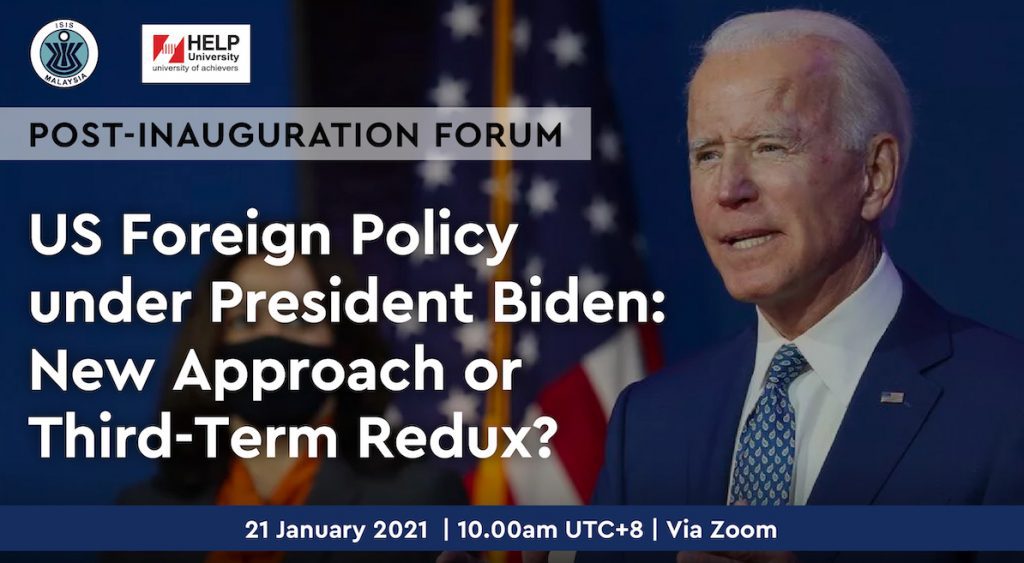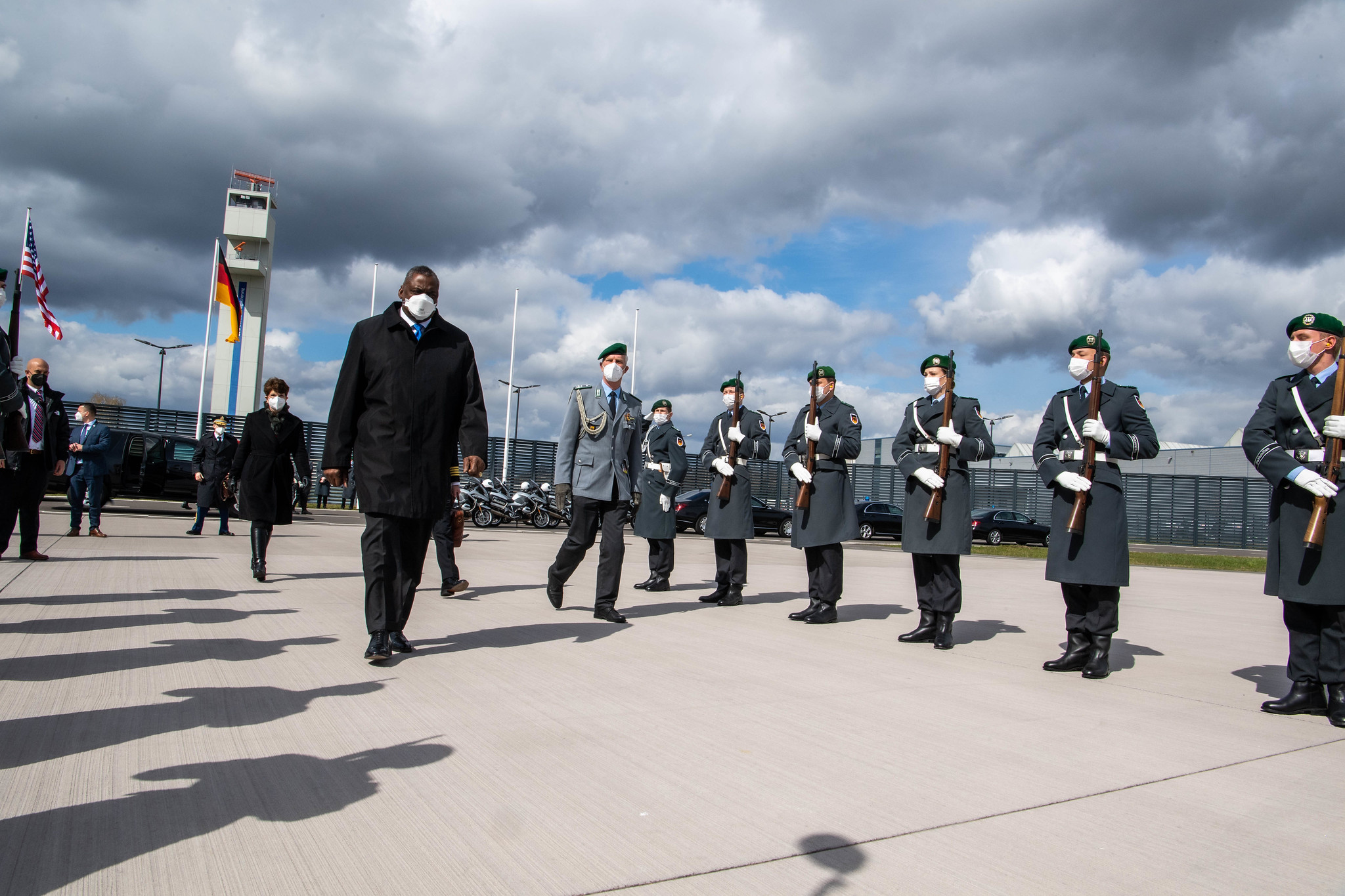
Shadow Wars
Patrick Lawrence / Consortium News
(November 16, 2021) — Can you hear the drums of war rolling? They beat across both oceans now, rum-rum-rum-pa-rum-rum. And there alongside them are the fifers, sounding as if they have just arrived from the fields of Lexington and Concord. Onward in the name of… in the name of empire, the unliberty of others.
At last, something is clear about President Joe Biden’s amateurishly incoherent foreign policy. In the course of this autumn, the regime has settled on two theaters in which taxpayers, frightened-of-the-world Americans, are encouraged to think the republic’s bravest will go to war. The US will wage war in behalf of Ukraine and war in behalf of Taiwan. Supposedly.
Let us be clear off the top about what exactly is clear.
The danger of war with Russia over the long-running, lately revived Ukraine crisis and with China over the long-running, lately revived Taiwan crisis has heightened considerably in recent months. There is no question of this. But I am here to tell you that the United States will not go to war in either case. Two reasons:
One, people who are smart about winning and losing, if not about much else, know very well that the US could not possibly win a war in either case. Corollary: They also know that body bags arriving in Delaware or California from Eastern Ukraine or Taiwan’s China-facing beaches risk igniting a real, live, true-blue antiwar movement. People would wake up, and they can’t have that.
Two and more saliently, the danger of war is all the administration, the armed forces, the defense contractors, and all the hawks in the media and on Capitol Hill want and need. It is their tried-and-true organizing principle. They are doing very well organizing American minds on danger alone. But going to war with Russia or China would be counterproductive because in all likelihood it would not last long. Then what? The risk of peace? The danger of war is a hardy perennial.

Foreign Policy Success Needed
The talk in Washington as I hear it from friends and sources is that Biden needs a foreign policy success and that he has been leaning on Secretary of State Antony Blinken to give him one, preferably before the midterm elections next year. What, we must ask, counts as a foreign policy success in Washington in the year 2021?
Well, Biden brought America back into the Paris Climate Accord and the World Health Organization. This is fine, but it’s cheap thrills in both cases. The Glasgow summit, COP26, is now counted a failure and Biden arrived empty-handed in any case. As to the WHO, whatever good may come of it lacks sizzle, bright lights — drums, indeed. The administration isn’t going to come home from Geneva with any trophies or banners.
Last week Vice–President Kamala Harris spent some time in Paris conferring with Emmanuel Macron. I was surprised the prideful French president agreed to meet with the administration’s No. 1 nebbish (Blinken has fallen back to No. 2), but what came of the encounter?
I will quote the government-supervised New York Times to get this just right. “And she secured a commitment for the United States to join a nonbinding international declaration to protect civilians against cyberattacks,” saith the Times.
Am I missing something? Kamala Harris had to go to Paris to negotiate with France’s president to win her own country’s commitment to a declaration he sponsored — nonbinding, blurry as to purpose, with all the teeth of a nonagenarian?
Pantomime, as I read it. Something well short of a foreign policy success, certainly. The frightening thing comes in the Times’s head (in its print editions): “In talks With Macron, the US Vice–President Asserts Herself as a Diplomatic Asset.”
Diplomatic what? If this is what the Biden administration means as it goes on and on about diplomacy first, military solutions a last resort, the word that first comes to mind is “Yikes!”
Memo to the Times’ foreign desk: The Harris-as-competent-stateswoman narrative will bite you on your backsides if you take it too far. Best avoid.
Ten months into this administration, the now-evident reality is that Team Biden’s repeatedly expressed commitment to step back from decades of military-first foreign policy in favor of diplomatic engagement was never anything more than happy talk. And we ought to have known: Tell-them-one-thing-and-do-the- opposite is classic Biden.

Ukraine and Taiwan
In truth, this administration is no more immune from the dictates of the Deep State than any of its predecessors progressively since Eisenhower. Where, then, are Biden’s national security people, chock-a-block with connections to the defense industries, going to look for a foreign policy victory and what will it look like if they find one. The question brings us back to Ukraine and Taiwan.
Here is Mark Milley, chairman of the Joint Chiefs of Staff, at the recent session of the annual Aspen Security Forum. He had just observed that the Cold War was bipolar, between the US and the Soviet Union:
“We are entering into a tripolar war with the United States, Russia, and China all as great powers. With new technologies coming quickly, we’re entering a world that is potentially much more strategically unstable than the last 40 to 70 years.”
There is some talk in Washington that Milley’s phrase was “a tripolar world.” This is the wishful thinking of those who stumble over what he said. The above quotation comes from the Defense Department web site. The reference was to Cold War II.

Mark A. Milley, chair of the Joint Chiefs of Staff.
Biden can protest all he wishes that the US doesn’t want one. Our top military officer has just told us this is exactly where we are headed. In the second of Milley’s assertions, not to be missed, the apparent intent is to prepare us for a second Cold War as prolonged as the first. At this stage in the proceedings Taiwan and Ukraine are the necessary flashpoints.
China hawks in the administration, on Capitol Hill, and in the media have been pushing for many months now for the US to abandon two of the pillars of US policy toward China since the Nixon–Kissinger demarche of the early 1970s and formal recognition of the People’s Republic in 1979. They are closely related.
One of these is the One China policy, which was included in the Shanghai Communiqué Nixon signed in 1972. It commits the US to recognizing that there is one, unified China that includes Taiwan. This is an historically accurate position, given China’s sovereignty over the island has well more than a millennia of precedent behind it. Beijing does not open diplomatic relations with any nation that does not acknowledge what it calls the One China Principle.
The other feature of US policy is called “strategic ambiguity.” This goes back to 1949, when, following Mao’s victory, the Truman administration declined to recognize the revolutionary government while stating that it would not leave Taiwan to its own devices in the case of a mainland attack — without, important to note, making clear how it would come to the island’s defense.
All that has transpired in recent months reflects an effort to tip these diplomatic principles over. China hawks want a clear statement that the US no longer recognizes Chinese sovereignty over Taiwan and will indeed commit troops to its defense in the event of a conflict across the Taiwan Strait. The pro-independence administration in Taipei is watching and listening in great anticipation.
Nothing, as in nothing, could do more to provoke Beijing’s hostility toward the US — as the Deep State know as well as anyone. Sending Marines and special forces to train Taiwan’s troops, approval of a $750 million arms sale last summer — the Biden administration’s first — constant “freedom of navigation” sails through the Taiwan Strait, the arrival last week of US legislators via a Navy aircraft: All of this, not to mention the three-sided AUKUS agreement, has but one objective. It is intended to provoke, to conjure and heighten danger.
Jump cut.

US Secretary of Defense Lloyd Austin leaving Berlin. (DoD photo0
Defense Secretary Lloyd Austin, who reportedly made more than $1 million on selling his Raytheon stock and resigning from its board to head the Pentagon, made the following remarks during his visit to Ukraine last month. His reference is to Andriy Taran, Ukraine’s defense minister at the time:
“Minister Taran and I saw each other just a few weeks ago at the Pentagon and we had a productive discussion today about how we intend to implement the US–Ukraine Strategic Defense Framework…. The Strategic Defense Framework created a foundation for enhancing our defense and security cooperation, and we remain committed to strengthening our strategic partnership…. US support for Ukraine’s sovereignty and territorial integrity is unwavering….
At the June 2021 NATO Summit, the United States and its allies reaffirmed our support for Ukraine’s right to decide its own future foreign policy course free from outside interference, including with respect to Ukraine’s aspirations to join NATO.”
As measured by their sheer recklessness, these comments are roughly in parallel with the China hawks’ insistence that Washington abandon the One China policy and prepare to defend Taiwan against any incursion from the mainland. Any serious effort to bring Ukraine into NATO would very likely have the same effect on Moscow as a repudiation of One China would have on Beijing.
Subsequent to Austin’s visit, Blinken met Ukrainian President Voloymyr Zelenskyy in Glasgow and Assistant Secretary of State Karen Donfried went to Kiev. Both reiterated Austin’s message: We’re with you no matter what.
American reconnaissance flights over the Black Sea have simultaneously increased. In Kiev, Zenlenskyy recently appointed Dmytro Yarosh, long prominent among Ukraine’s Russophobic Nazis — no need for the “neo” anymore — as special adviser to the Ukrainian armed forces.
We can read developments in Taiwan and Ukraine in tandem, two sides of the same policy. In both cases, the US appears to have local authorities all hopped up in the expectation that they will enjoy American support in any confrontation that may develop with China and Russia respectively.
And at the same time, it is sailing with precision as close to the wind as possible to maintain the status quo. Yes, we want you in NATO, Austin tells the Ukrainians. No, NATO Secretary-General Jens Stoltenberg says subsequently, they do not qualify. We stand with you, the administration signals to Taiwan. But in his virtual summit with Chinese President Xi Jinping Monday evening, Biden reiterated America’s commitment to One China.
It would be hard to match this for cynicism. Any such outbreak of hostilities —across the Taiwan Strait, on Ukraine’s border with Russia — would serve as justification for precisely the Cold War II Milley described. But, for reasons noted above, in neither case is there any plausible chance that the US would intervene directly in behalf of Taiwan or Ukraine. They are effectively props in Act I of the play the Deep State now shows at a theater near you.
In my estimation, all the talk of dropping One China and strategic ambiguity, or bringing Ukraine into NATO, is as hollow as it gets. Fringe-y crackpot hawks who don’t have passports and can’t get their verbs right are the only ones who would carry through with either idea. Again, the talk does well enough as a multiplier of danger just by remaining in the discourse.
The danger of war, to be very clear, cannot be dismissed. But I don’t rate it as highly as many others. The more immediate danger in these strategies and the policies supporting them is to Americans. Decades of deprivation and assorted sorts of suffering, as in decades, will result from Cold War II. There is no doubt of this: It is already evident as Congress chisels down Biden’s domestic programs while increasing the Pentagon’s budget.
This is the shape of Biden’s foreign policy now that we can see it. We’ve got diplomats fussing at the margins with matters of minor concern to the national security state — keep those BLM flags flying at the embassies, Tony — while the generals and admirals run foreign policy.
It is all very different because Biden is a Democrat. All very new and worthy of liberal support. And all very stomach-turning.
Patrick Lawrence, a correspondent abroad for many years, chiefly for the International Herald Tribune, is a columnist, essayist, author and lecturer. His most recent book is Time No Longer: Americans After the American Century. Follow him on Twitter @thefloutist. His web site is Patrick Lawrence.
The views expressed are solely those of the author and may or may not reflect those of Consortium News.
Posted in accordance with Title 17, Section 107, US Code, for noncommercial, educational purposes.